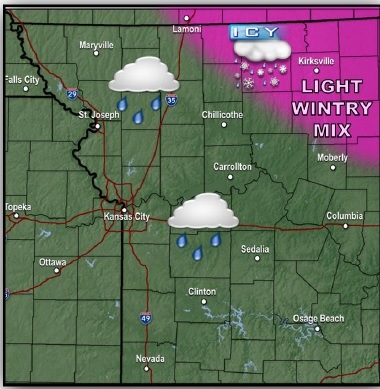House, Senate committee leaders want state agencies to halt work
by Andy Marso, KHI News Service
Republican legislators who control energy-related House and Senate committees want to halt work on a plan to comply with federal climate change regulations now that the U.S. Supreme Court has put a temporary stay on the requirements.
But some of their colleagues say it would be prudent to keep preparing the plan in case the court ultimately rules against the state. And environmentalists say the state should move to reduce carbon emissions regardless of federal law.
Rep. Dennis Hedke, a Republican from Wichita and the chairman of the House Energy and Environment Committee, said during a Monday committee meeting that halting work on a state plan could save $1 million in each of the next two years.
He also lauded Jeff Chanay, the state’s chief deputy attorney general, for his work on the litigation that led to the Supreme Court stay.
“Thank you for the effort undertaken on behalf of the state of Kansas,” Hedke said. “I think you did a fantastic job.”
The regulation imposed by the U.S. Environmental Protection Agency seeks to reduce each state’s aggregate carbon emissions from power plants. Republican leaders in Kansas and other states have blasted the Clean Power Plan as unlawful federal overreach by President Barack Obama’s Democratic administration.
In October 2015, the Kansas Attorney General’s Office joined 26 other states in challenging the rule in federal court. Earlier that month, Kansas legislators grudgingly instructed the Kansas Department of Health and Environment to begin work on a state plan because if the state did not form one, it would have one imposed on it by the federal government. They also instructed the Kansas Corporation Commission, which regulates the state’s utilities, to analyze the costs of any plan.
After the Supreme Court stayed the regulation Feb. 9, Hedke said he and Sen. Rob Olson, a Republican from Olathe who chairs the Senate Utilities Committee, penned a joint letter to the state agencies requesting they stop their work.
Hedke said his committee also would soon take up Senate Bill 318, a bill Olson amended on the Senate floor to forbid work on a state plan while the stay is in effect.
Some legislators on both sides of the aisle asked whether the state needs to be better prepared if the stay is ended and the regulations are back in place.
Rep. Russ Jennings, a Republican from Lakin, asked Chanay if he thought legislators should include a “trigger mechanism” that would instruct agencies to resume their work if the stay is lifted while the Legislature is not in session.
Rep. John Carmichael, a Democrat from Wichita, said after the hearing that the death of Supreme Court Justice Antonin Scalia just days after the stay was imposed could change the legal landscape. The court voted 5-4 to put the EPA rule on hold while it’s being litigated.
“Should the issue be passed to the Supreme Court again in the absence of Justice Scalia, one might expect a difference outcome,” Carmichael said.
Rep. Tom Moxley, a Republican from Council Grove, said utility companies that would be most affected have told him they would like the state to pursue parallel tracks: continue litigating while also preparing a state compliance plan in case the litigation fails.
“The utilities think we should stay engaged,” Moxley said.
Moxley also said something as consequential as the Obama climate plan should have been subject to a vote in Congress. Its imposition through regulation instead of law was a symptom of a standoff between the Obama administration and Congress that has been bad for the nation, he said.
Legislators on both sides of the issue asked pointed questions about the costs that KDHE and the KCC have incurred while forming a plan to comply with the regulation versus the resources the Kansas attorney general’s office has spent fighting it.
Zack Pistora, a lobbyist for the Kansas Sierra Club, said those costs are minimal compared to the environmental and public health costs of ignoring climate change, especially in an agriculture state with an economy sensitive to weather patterns and climate trends.
Pistora said 25 weather events have affected Kansas since 2010 that cost $1 billion or more in combined losses to states. The state should be seeking to curb carbon emissions regardless of federal regulation, he said.
“While it’s important the Supreme Court carefully reviews the constitutional viability of the law, let’s not lose sight of the pressing need of why we ought to change our energy systems,” Pistora said. “It’s because burning fossils fuels are largely causing our carbon pollution, and it’s drastically changing our global climate.”
Olson and Hedke have both said publicly that they don’t believe human activity is affecting the earth’s climate.
The nonprofit KHI News Service is an editorially independent initiative of the Kansas Health Institute and a partner in the Heartland Health Monitor reporting collaboration. All stories and photos may be republished at no cost with proper attribution and a link back to KHI.org when a story is reposted online.
– See more at http://www.khi.org/news/article/kansas-climate-change-plan-in-limbo-after-supreme-court-ruling#sthash.FI9gOh2V.dpuf

